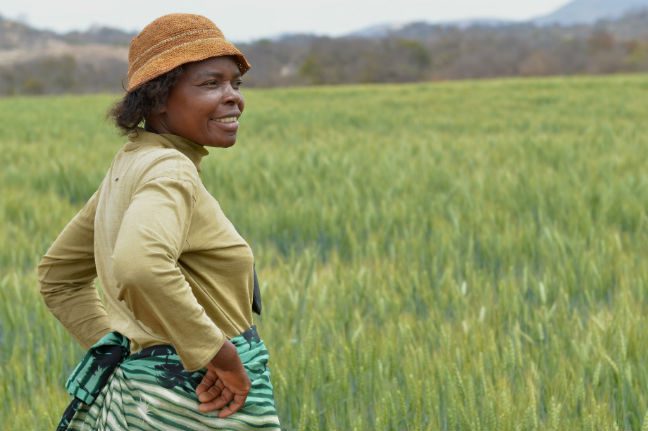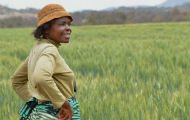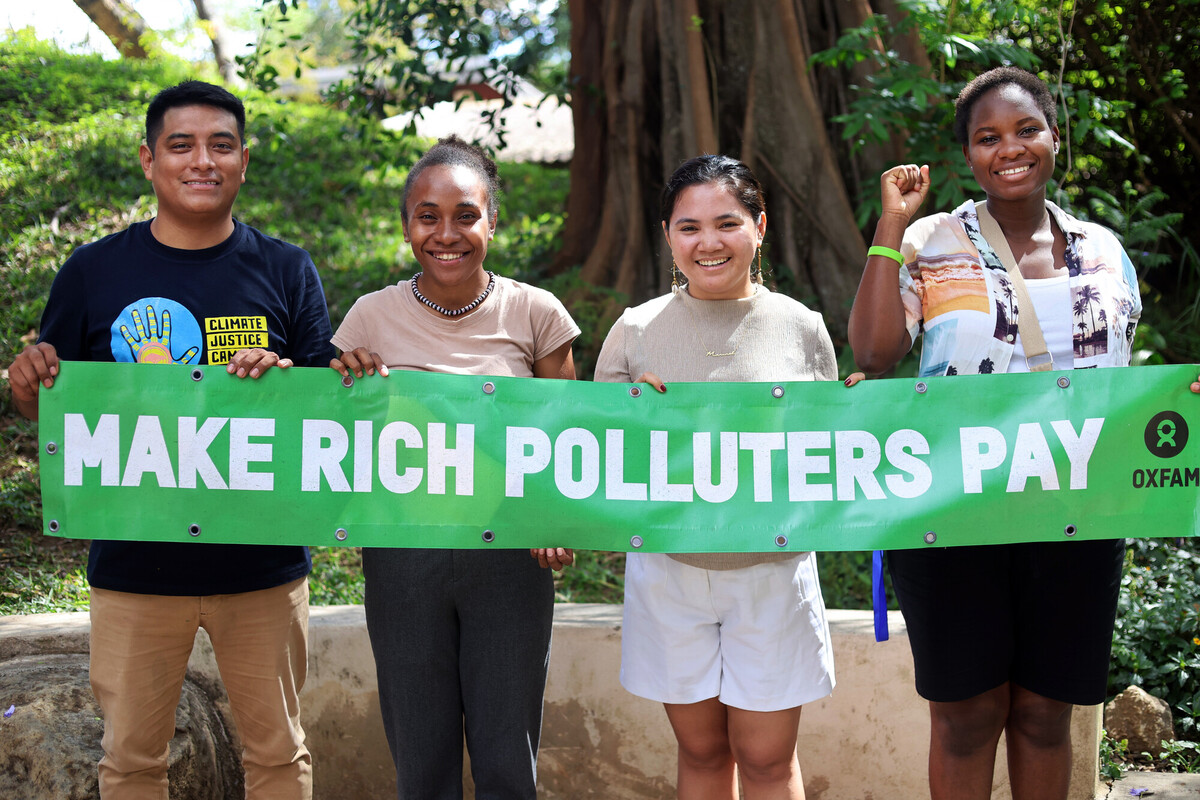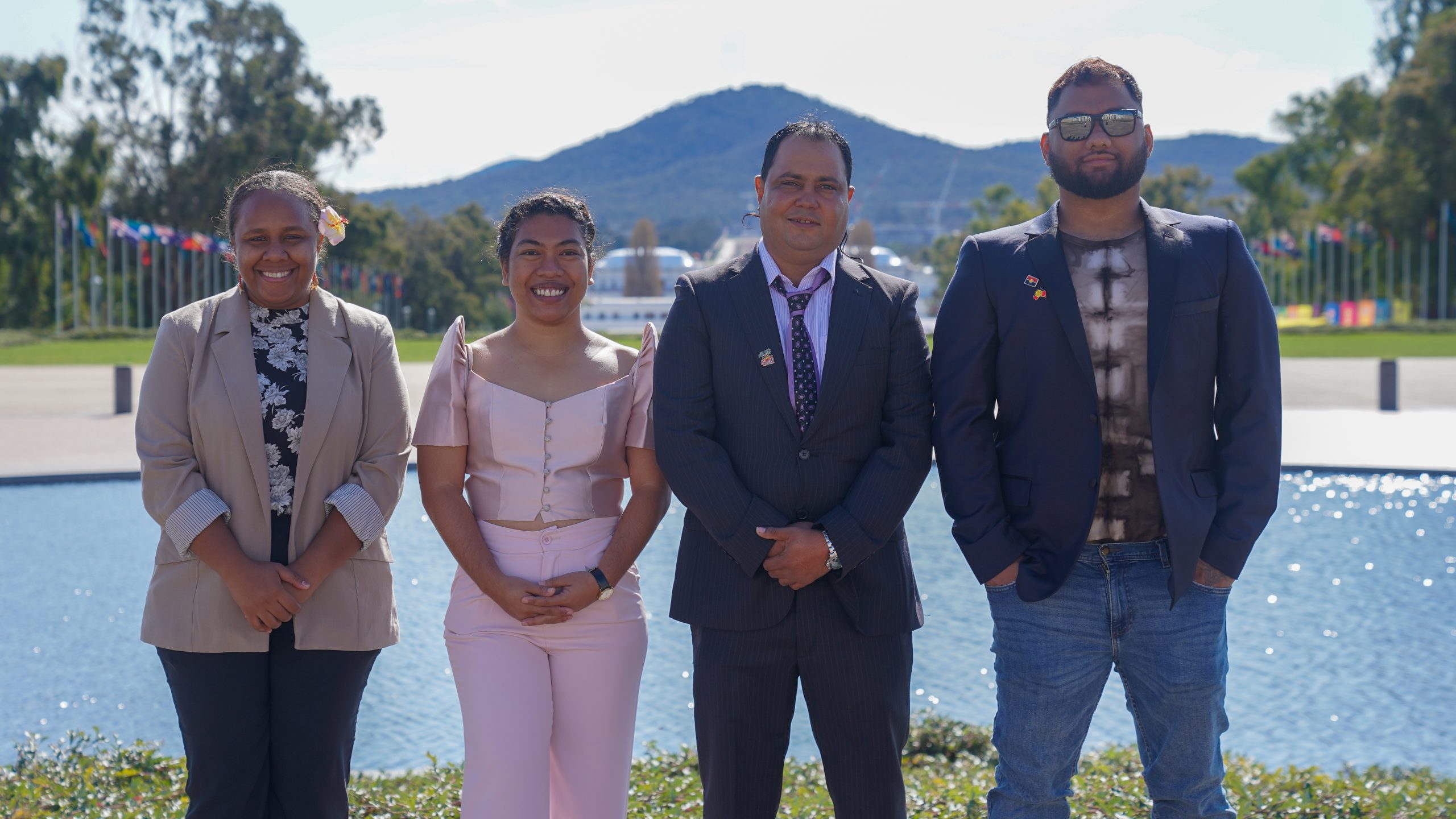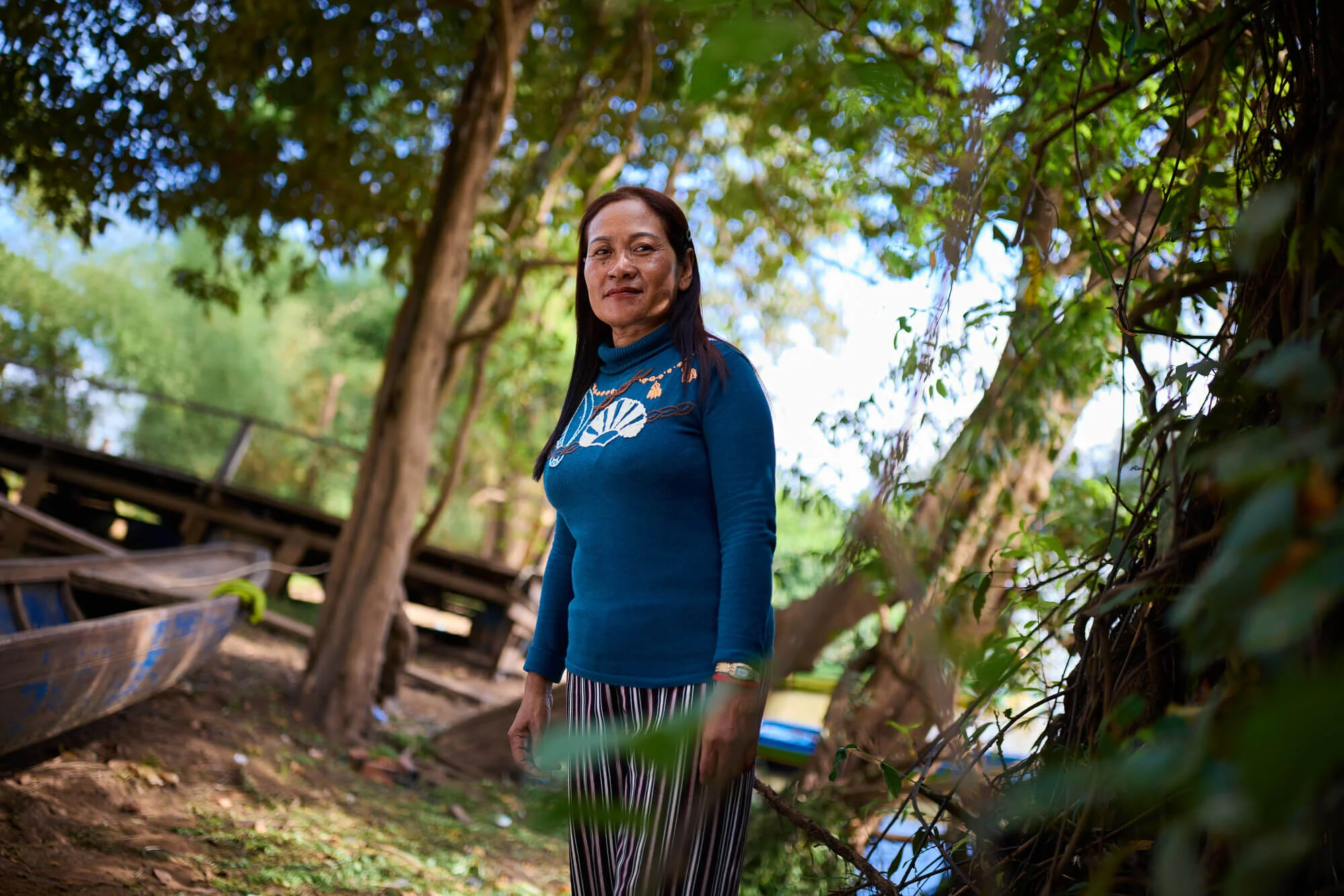Climate change affects us all, but it often impacts women the hardest. In many parts of the world it tends to be women who grow the family’s food, fetch fuel and water and bring up the children. It’s women who are most likely to be in harm’s way when disaster strikes. So when clean water becomes harder to find during a drought, or when crops are destroyed by floods, it’s often up to women to find solutions.
Enter Ipaishe. Born in Zimbabwe, Ipaishe is a passionate farmer. And she’s one of the many extraordinary women across the world championing the fight against climate change.
“My name is Ipaishe Masvingise. I am 46 years old but I don’t look so bad do I!” said Ipaishe.
Although she now has her own fertile plot of land, Ipaishe knows the impacts of climate change all too well. Despite their hard work, her family’s crops suffered from the lack of rain.
“Our land was fertile and we used to get good harvests but then the weather changed, the rain is really erratic. You work and work but get nothing back if there’s no water.”
Rainfall is becoming increasingly erratic in Zimbabwe — and it’s hard for farmers like Ipaishe to predict when to plant. Rainfall in Zimbabwe has already declined by around 7–15% in the last 100 years.
“Over the last 10 years the climate has changed. If the rains are too little, it affects our way of life. If the rains are more than we need, then it drastically affects our life as well.
“If we look into the skies and see that there isn’t going to be much rain we will be frightened because of the fear that we’ll be forced to ration our food. By rationing to those levels it affects the health of our children.”
If we look into the skies and see that there isn’t going to be much rain we will be frightened because of the fear that we’ll be forced to ration our food. By rationing to those levels it affects the health of our children
To combat the threat of hunger, Ipaishe and other women in her community are part of an irrigation project. They’re trying to adapt and continue to grow crops despite the decreasing rainfall.
They use their experience to campaign for climate change adaptation techniques to ensure farmers in Zimbabwe can grow enough food to feed themselves and their families — whatever the weather.
“The way we survive here in Gutu is by farming. It’s the only livelihood we have. The food we produce makes us healthy and strong, and the surplus food we grow we can sell, and in return we get money for school fees and hospital fees,” said Ipaishe.
“Looking at the problem we currently face, we all have a responsibility. It starts from us as farmers – we should stop cutting down and burning trees. Then we will be able to share our concerns with the people in charge so they can begin to solve the problems. But we are the ones who should highlight the issues.
Oxfam is working to raise awareness of the critical role that women play in tackling climate change. And we’re pushing for a much greater response from the international community to ensure that these inequalities are addressed and women like Ipaishe are engaged as critical agents of change.
“We feel belittled. We feel the rich people are always getting a better life, and using their money to step on us and cause these crises in our lives,” said Ipaishe.
“My message to those who haven’t seen the climate changes, I say to them come out and unite with others and learn more about it and then they will come to understand. Because if a man remains in his house resistant to change then they will be hidden from this problem that we see around us. We must unite with others and all learn about this climate change.”
Are you hungry for a fair climate? Stand with Ipaishe and take action now
